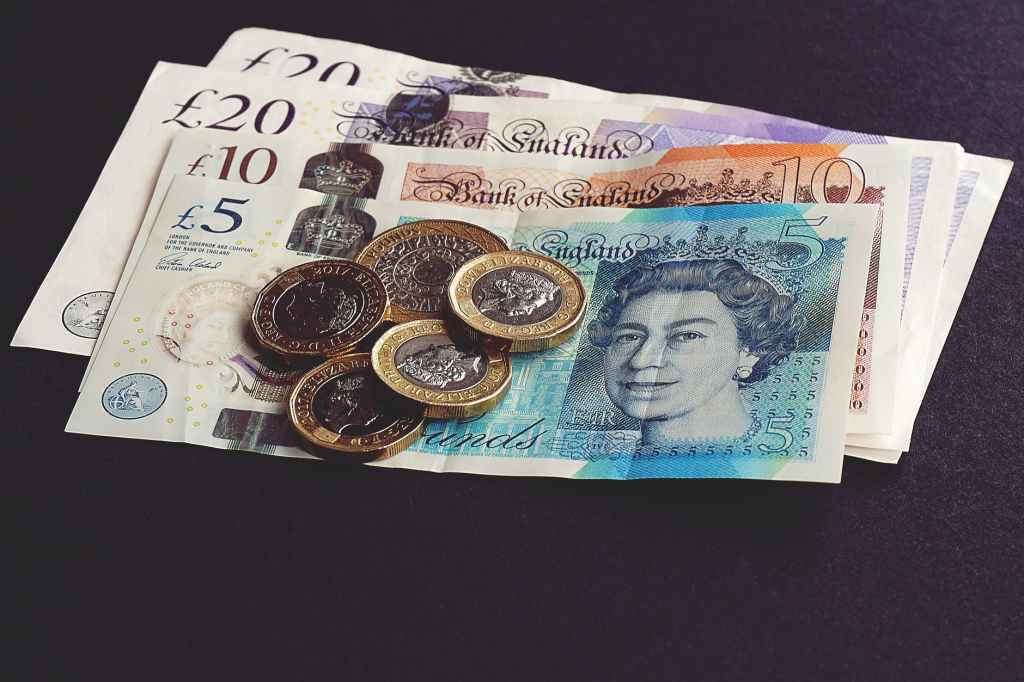We are all probably aware of the need to save and invest. But if you are like me, saving and investing is something you put off for a very long time because you did not know much about it. Unfortunately, financial management is not something often taught in schools (unless, of course, you choose a course related to it). This means we all have to do a bit of self-learning on how to save and invest wisely. I am far from being an expert, but I thought I would share some tips on saving and investing on a budget, based on my own experiences as a student!
1. Use a savings and investment app.

There are so many savings and investment apps to choose from. Plum (only open to UK accounts) is one of my favourites. It uses AI to track your spendings and automatically save for you based on what you can afford. You can also change its ‘mood’ if you want to save more or save less. Plum also has an investment feature that allows you to start investing with just £1. If you enable the ‘Splitter’ function, when Plum saves for you it will automatically split your money between savings and investment, all without you having to do anything! You can sign up using this link.
PiggyVest (only open to Nigerian accounts) is another app I recently discovered and I absolutely love it! Just saving your money in your Piggybank or ‘Flex Naira’ account will generate interest of 10% per annum. If you want something stricter, you can keep funds in your ‘Safelock’ account. This will generate interest of 13% per annum, but you will be unable to access the funds until the day you choose. This can be a good option if you are trying to resist the temptation to spend. There are also opportunities to invest with as little as N5,000, and generate interest ranging from 12-24% in 12 months or less. Sign up using this link and get a N1,000 bonus when you save just N100.
What I love about these two apps is that they allow you to start your savings and investment journey with just a little amount. If you live outside the UK or Nigeria, I’m pretty sure you can find a similar savings and investment app with a quick Google search!
2. Keep cash (or don’t!)

When I was in the UK, I paid for everything – and I mean everything – with my card. But in Nigeria, I pay with cash more frequently. So whether you decide to keep cash or not will depend on how you usually pay for things. If you usually pay with your card, then I recommend that you keep some extra cash aside. I was always grateful to find extra cash that I had set aside and forgotten about. Similarly, if you usually pay with cash, then keep some money away in an account that you do not use very often. You will probably forget about it for a while, which removes the temptation to spend it. Better still, you can invest the money if you are sure that you will not need it anytime soon.
3. Keep foreign currency!

Obviously this will not apply to everyone, but if you frequently travel between countries (for example, international students), then it is helpful to keep some foreign currency. While I was in university, I frequently went back and forth between the UK and Nigeria. This meant that at different times, I had to use either pounds or naira (or sometimes dollars at the airports). Most times, I kept some foreign currency with me and only converted it if I absolutely needed to. It really does not have to be a huge amount, but keeping some foreign currency is a smart way to save money without the temptation to spend it (because obviously you cannot spend the money until you convert it).
4. Take online surveys.

Qmee (only available to residents of the UK, USA, Canada, and Australia) is by far the best online survey platform I have ever come across. It does not use a points system like other platforms; instead, it adds real cash to your piggybank for each survey you complete. What is more, there is no minimum cashout! You do not need to reach a minimum threshold or wait for a certain period of time before you can withdraw from your piggybank. Qmee also has the added benefit of offering cash rewards for searching and engaging with particular sites, and offering a price comparison tool. However, this is optional. For me, I mainly used the online survey option.
Now, this is by no means the best use of your time – payment for each survey ranges from as little as 12p to over £1, and the time taken to complete a survey ranges from 5 minutes to, in the worst case, 45 minutes (you can see the approximate time it takes to complete a particular survey before you start). There is also no guarantee that you will get multiple surveys to complete in a day. But I have added this option because it is useful as a last resort. If you are running low on cash, you can find some online surveys to complete on Qmee and get rewarded with instant cash! Sign up using this link and earn a 50p bonus on your first cashout.
Overall, there is still so much I have to learn about saving and investing. Do you have any tips on financial management and investing on a small or large scale? Share them in the comment section!
DISCLAIMER: The information in this post does not constitute professional financial or investment advice. I am simply sharing what worked for me in the hope that someone in a similar situation might benefit from it.
Related: How to Make Money as a Beginner Freelance Writer in 2020
Enjoyed this post? Hit the ‘Subscribe’ button below to get notified of new posts by email!
Email’s not your thing? I gatchu! Follow this blog on social media: @kikibyrukky.